Following another new release (now available for download from the website), a word from our lovely developer team. Alex is currently sunning himself in the south of France, so we'll hear from Morgan - who as fate would have it is currently hard at work in his alternative office... in the south of France. Ladies and gentlemen, please welcome the latest release of FrontlineSMS: v1.6.14.
As you might have noticed, new builds have been fairly frequent since we released FrontlineSMS v1.6! Now that we've changed the architecture of our code, and we have two full-time developers, we're trying to make things move faster.
A new releasing process
Our new work process is simple: we build a release candidate. Then, this version is tested by our wonderful testers (including Aleksei Ivanov in Russia, and Aptivate in Cambridge), and once we're happy with it, we release it to the public.
Then, we spend our time implementing new features, and fixing any issues you share with us on the community page. When a new iteration is finished, we build a release candidate, and then start all over again.
Now you are familiar with our process, let's talk a bit about FrontlineSMS 1.6.14 and its new features.
FrontlineSMS v1.6.14
First of all, we've fixed some important issues. You can now label fields in the Forms plugin, and send SMS using IntelliSMS once more. We also added a fix to several smaller issues.
But the main change in FrontlineSMS 1.6.14 is the new Translation Manager. This new plugin now allows you to help us translate FrontlineSMS into different languages.
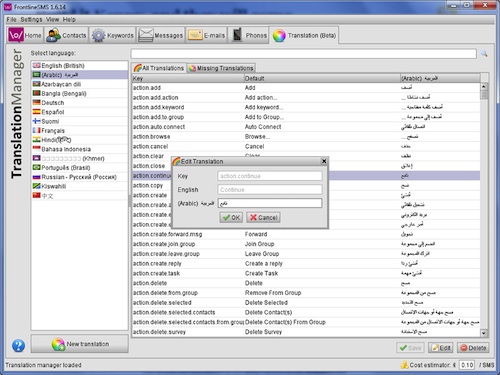
As you know, FrontlineSMS is available in an increasing number of languages, and each has been put together by teams of volunteers. Up until now, incorporating a new language has been difficult, and has relied on support from the core FrontlineSMS team. Translation Manager changes all that, and allows you to create your own translations without needing to work through us. You can edit existing translations in case you find errors, or want anything changed. You can also create brand new translations, and then send us the files so we can include them in future public releases.
Please note, however, that this plugin is still in Beta, and it would be amazing if you could help us improve it!
Now it's time for you to enjoy FrontlineSMS 1.6.14. Altogether now, arms up! o/


 A little Friday fun in a good cause -
A little Friday fun in a good cause - 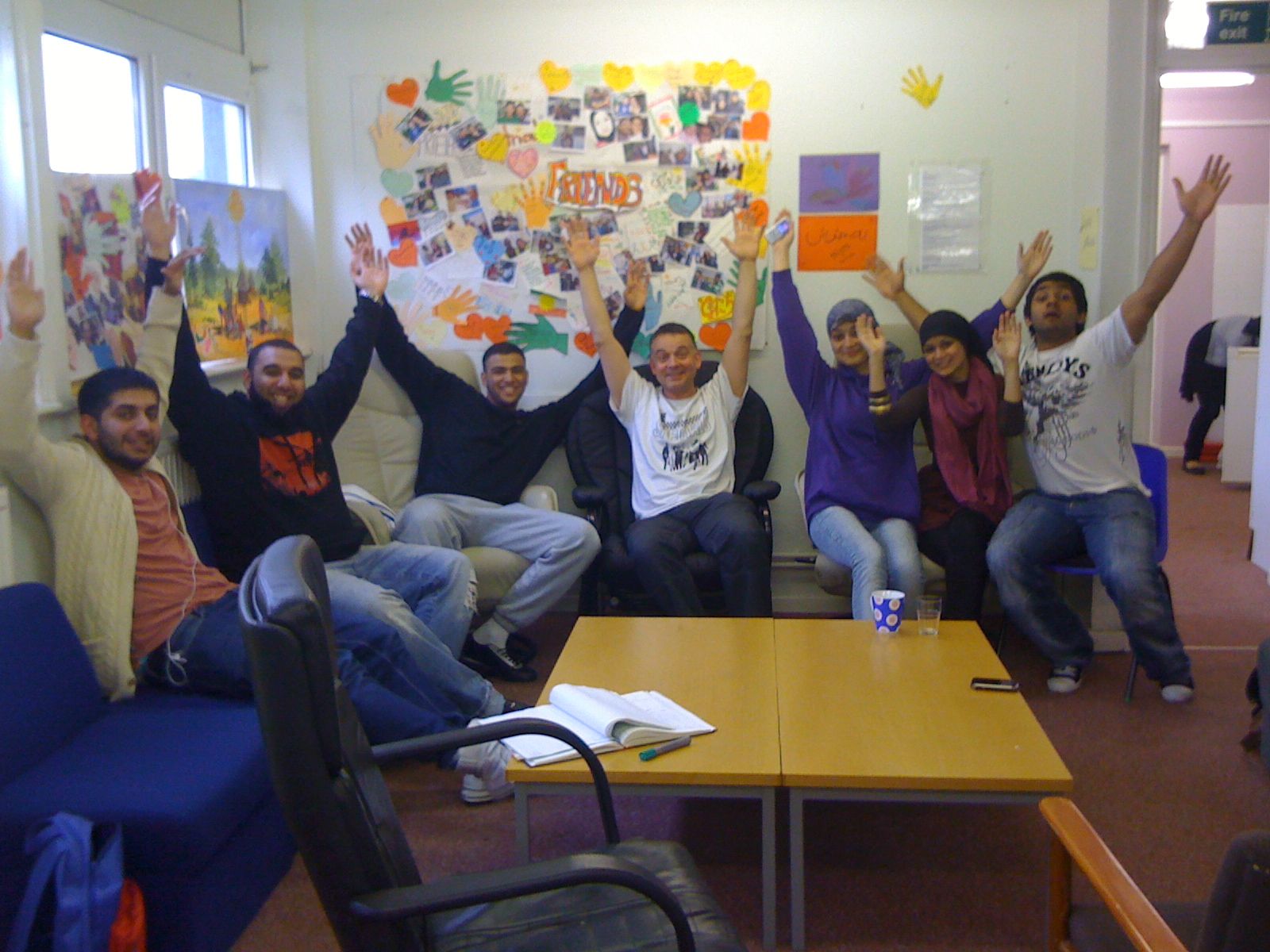
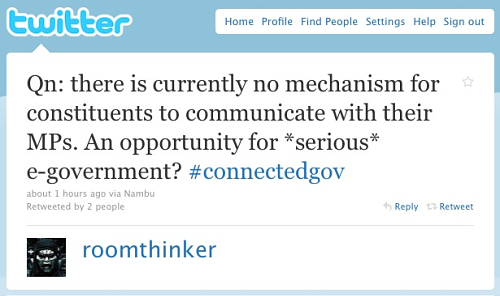
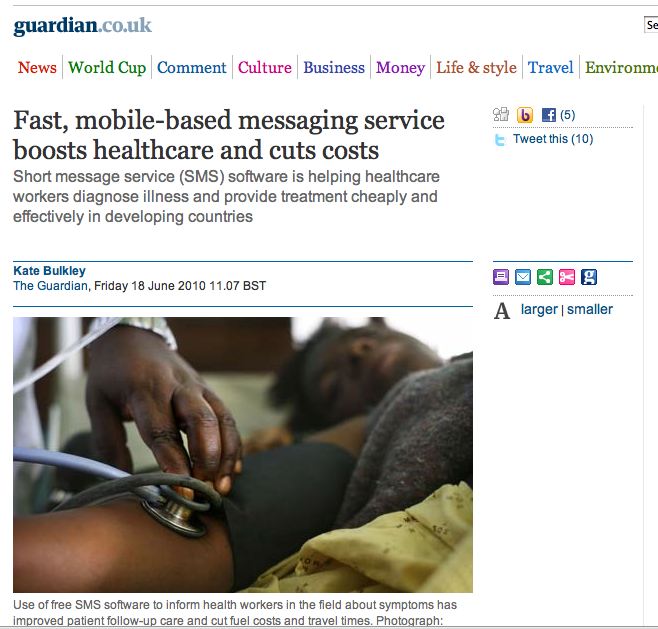 "The community health workers were able to get the information to the right people about symptoms much faster," says Josh Nesbit, executive director of FrontlineSMS:Medic. "Now all patient follow-up is based on SMS messages, which means that less patients are dropping out of their drug programmes because they forget or don't know where to get the drugs."
"The community health workers were able to get the information to the right people about symptoms much faster," says Josh Nesbit, executive director of FrontlineSMS:Medic. "Now all patient follow-up is based on SMS messages, which means that less patients are dropping out of their drug programmes because they forget or don't know where to get the drugs."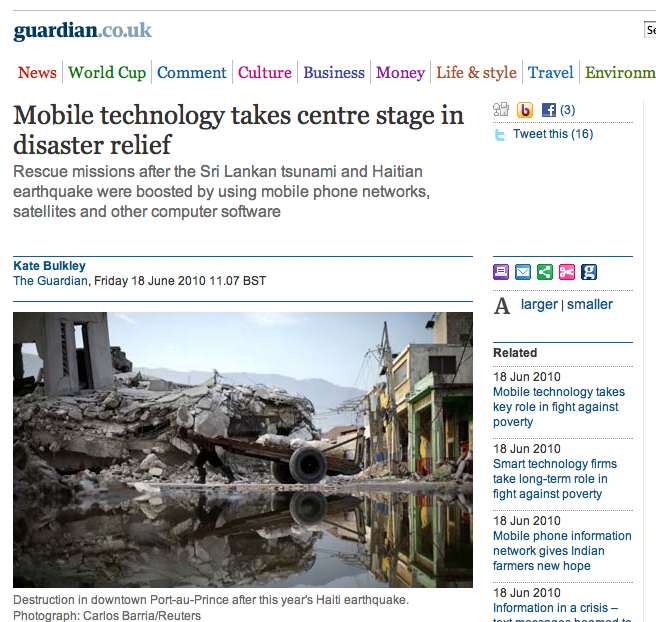 "The good news about mobile penetration is how you can interact with people at scale to serve a social good and be in touch with people's needs," says Josh Nesbit, executive director of
"The good news about mobile penetration is how you can interact with people at scale to serve a social good and be in touch with people's needs," says Josh Nesbit, executive director of 
